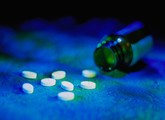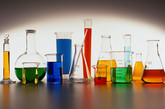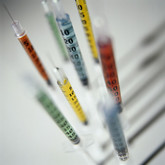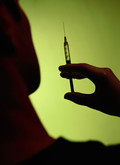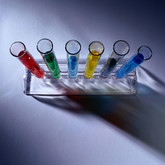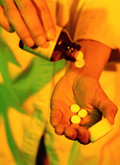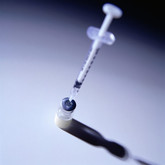Biosimilars
CCM and Biocon make biosimilar insulin deal
Malaysia-based Chemical Company of Malaysia Berhad (CCM), announced on 14 December 2012 an agreement between its subsidiary, CCM Pharmaceuticals Sdn Bhd (CCMP), and India-based Biocon, giving CCMP exclusive licence and distribution rights to market, sell and distribute a range of insulin products in Malaysia and Brunei.
History of biosimilar monoclonal antibodies regulation in EU
Monoclonal antibodies (mAbs) are high molecular weight proteins (~150 kDa), with highly complex secondary and tertiary structures, subject to post-translational modifications, such as glycosylation.
Overview of research on manufacturing statistics and innovations of biosimilars in 2012
Period: January to August 2012
Manufacturing of biosimilars is much more challenging than producing traditional small molecule generics. Reasons for this include, in the first place, the huge costs associated with manufacturing of biosimilars, along with the fact that the risk of failure for biosimilars is significantly higher than that for small molecule generics. Secondly, biosimilars are larger and more complex molecules to manufacture. Finally, minor changes in the manufacturing process can cause significant changes in efficacy or immunogenicity.
Comparison of EPARs for G-CSF biosimilars approved in Europe
EMA approved its first biosimilar granulocyte colony-stimulating factor (G-CSF, filgrastim) for use in Europe back in 2008, since then, several biosimilar G-CSFs have been approved, including Biograstim, Filgrastim ratiopharm, Ratiograstim, Tevagrastim, Filgrastim Hexal, Zarzio and Nivestim. All biosimilar G-CSFs were approved using Amgen’s Neupogen as the reference product. Filgrastim ratiopharm was withdrawn on 20 April 2011.
Originator biologicals approved and marketed in Germany
Last updated: 14 December 2012
The Federal Institute for Drugs and Medical Devices (Bundesinstitut für Arzneimittel und Medizinprodukte, BfArM) is responsible for the approval, i.e. marketing authorization, of medicinal products, including biologicals, in Germany.
Overview of research on regulatory issues surrounding biosimilars in 2012
Period: January to August 2012
In the area of regulation of biosimilars Europe has by far the best-established framework for approval and EMA has already issued both general and product specific guidelines for biosimilar applications to the EU [1]. The first biosimilar was approved in the EU in 2006 for Omnitrope (somatropin). There are now 14 biosimilars approved for use in Europe for three reference products: erythropoietin, granulocyte-colony stimulating factor and somatropin [2].
China-based Innovent gains funding for expansion
Innovent Biologics (Innovent) has raised US$25 million in Series B financing to put towards the continued expansion of its pipeline and manufacturing capabilities.
Marvel withdraws biosimilar insulin applications
EMA announced on 27 November 2012 that it had been informed by Marvel LifeSciences (Marvel) that the company would be withdrawing its authorization applications for its three biosimilar human insulins.
Approval of first biosimilar G-CSF in Japan
Mochida Pharmaceuticals (Mochida) and development partner Fuji Pharma announced on 21 November 2012 that they had gained approval for the first biosimilar granulocyte colony-stimulating factor (G-CSF) in Japan.
ASBM publishes paper on biosimilar naming
The US-based Alliance for Safe Biologic Medicines (ASBM) announced on 28 November 2012 that its recommendations with respect to identification and substitution of biosimilars have been published in the Food and Drug Law Institute (FDLI) policy forum.
